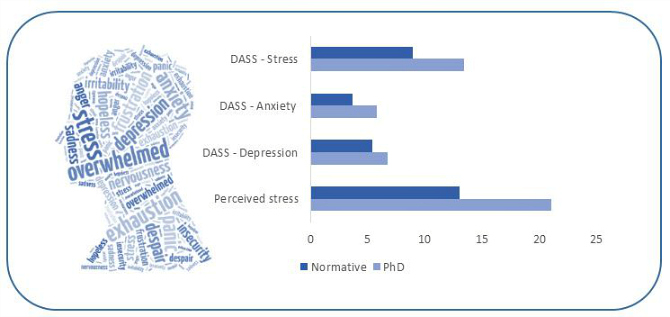Higher education in the UK has been defined by a succession of assessment frameworks; National Student Survey, Teaching, Research Excellence and Knowledge Exchange Frameworks. Turning the quantitative focus of these exercises onto the management of universities, Mark Erickson, Paul Hanna and Carl Walker present the findings of a survey of staff perceptions of senior management teams. Highlighting a wide dissatisfaction with senior management teams, they argue for increased accountability of senior management teams, as a means for making visible the overlooked consequences of the audit culture in UK universities.
The UK Higher Education sector has faced considerable changes in the past two decades including, amongst other things, wide-spread marketization, the introduction of fees, increasing rates of mental health issues for staff and students, increased staff workloads, increased precarity and the introduction of zero-hours contracts for teaching staff. The metrics which make the sector ‘knowable’ to the public and other stakeholders, the National Student Survey (NSS), the Teaching Excellence Framework (TEF) and the Research Excellence Framework (REF), completely overlook many of these key issues. Instead, they serve a state agenda to create a semblance of competition and choice, while in reality failing to measure very much at all.
However, numbers and metrics can also be used to interrogate the ideological logics of quantification and the largely benign realities that they describe. The Senior Management Survey (SMS) was designed by a group of UK academics to mobilise collective action that uses numbers, measurements and indicators as a means of critiquing and better understanding the issues facing higher education. The grandiose vision was to use statistics, not as tools for subjection, but as a way to challenge the status quo and give voice to those ignored by existing measures.
The Senior Management Survey was launched as a tool for academic staff around the UK to assess and comment on the practices of their senior management team. It was designed to move the gaze away from the narrow metrics of measuring staff performance, back to the senior management teams who set the conditions through which the measurement of individual staff performance becomes possible.
In doing so, we hoped to ask questions about the current trajectory of higher education in the UK and to broaden the debate about what universities should and could be for our students and colleagues. The survey mirrors the NSS focus on satisfaction, but it also asked about the perception of how senior management actions impact upon students, university values and financial exploitation, senior management performance, work pressure and the wellbeing and treatment of staff. The key focus was to use the data to produce a national league table of senior management teams, such that the more regressive and progressive higher education regimes can be identified and made visible.
The results of the survey have been published in Studies in Higher Education, the headline result is that, on average, 1 in 10 University staff are satisfied with their senior management teams. The highest institution scoring only 36.6% and three institutions scoring flat 0% satisfaction scores. Full details of the survey, the questions it asked and the league table of results are reproduced in our paper.
However, as well as receiving 5,888 responses to the survey we also collected 2,400 write-in comments. Many of these were deeply moving stories that presented truly staggering accounts of employment brutality, crushed dreams and utter disregard by senior management teams, who are ultimately responsible for the health and wellbeing of their staff and students. An outsider reading the comments could be forgiven for assuming that the principal service universities are commissioned to deliver is staff burnout.
Our thematic analysis of the qualitative data revealed seven major themes:
- Dominance and brutality of metrics
- Excessive workload
- Governance and accountability
- Perpetual change and loss of institutional memory
- Vanity projects
- The silenced academic
- Higher education work as a mental health hazard
It is this final theme that is the most significant: participants across the dataset reported examples of senior managers having a negative impact on staff well-being and mental health. Multiple reports of stress and psychological illness resulting from conditions imposed on junior colleagues, such as extended probation times, unrealistic and shifting goals, very high workloads. Senior management was repeatedly described as ‘distant’, ‘uncaring’, even ‘inhumane’, actively engaging in creating a disillusioned and despondent workforce through enforcing a suffocating array of audit assemblages, and through ignoring or silencing dissent.
Our qualitative data revealed many academic staff to be in very difficult, stressful, upsetting and sometimes demeaning situations. Senior managers have a duty of care to their staff and students, yet this seems to be absent from many institutions’ operations. Whilst it could be claimed that managers have a right to manage and that senior managers in many universities are innovating and changing their institutions in response to external conditions changing (notably the introduction of the £9,000 tuition fees regime in England), we must point to the data we collected that show considerable human health consequences – both physical and mental – from these management regimes for so many university employees.
The project does have limitations, but what it seeks to do is to begin to sketch new ways of generating accountability in a sector in which, despite the plethora of metrics, evidences some howling accountability gaps. Staff hold students to account via their grades, students hold staff to account via the NSS, but nobody holds senior management to account as they drive their Bentleys and sail their yachts through the new wild west that is the UK University sector.
Accountability is not the only answer to the toxicity of the modern university, but it is a big part and seeking to make accountable the institutions that control UK higher education is far from impossible. We have two choices. Either we wait in the hope that the government will intervene, or we get out and do it ourselves. We think that the latter option is the only viable one, and we hope that bringing some visibility to the parlous state of UK HE senior management may provide one of the many tools we will need in taking this campaign forwards.
Note: This article gives the views of the author, and not the position of the LSE Impact Blog, nor of the London School of Economics. Please review our comments policy if you have any concerns on posting a comment below.
Featured Image: adapted from Geralt, via Pxabay









Thought provoking!!
I believe it should at the very least be thought provoking. I advise professionals in the higher education sector on issues they have with their lives. What is not strange to me is that when approached everyone has exactly the same story and it is all contained in this article. This article is not news, it is not even deep insight it is just very long overdue.
Congratulations to the authors for producing the article but, in my experience of the last ten years, nothing is going to change. You can’t even protect your pension rights with any real sense of solidarity and that is no surprise. When your job and salary are on the line and hanging on that line is your mortgage and your family then management have you just where they want you. The answer to your problems are systemic, the solutions are political and the yoke which you all wear is economic.
In the end, none of you are going to do anything more than hold a conference or write a paper and that will not address the issue. In the meantime higher education has been turned into a mill (circa 1812 approximately) and the value of degrees have been turned into nothing more than receipts for paying money to a business model. You all know this, you are all aware of this and yet you are trapped.
The moment the ascendancy of the business model triumphed over the institutional concept of education you were the prisoners of the administrators and we all saw the salaries of Deans head towards the stratosphere. You have been taken over by the business model and you are now just proof of what happens when you make money the reason for everything.
Self-reported data, based on a non-representative sample comprised of union members and contacts (and THE readers), and an unbalanced literature review…. The original study is a blogpost at best, and shouldn’t have made it past peer review. Maybe some researchers are stressed because they’ve overreached on their career choice.
Do you have the same reservations about the NSS? That instrument has far more flaws than I could point to in Erickson et al’s work. The respondents may be largely UCU members, but so are a large number of academics, and that union is the negotiating body for academics. The key point you have chosen to overlook is that the work exposes the lack of accountability measures for senior managers, and the consequent damage we are all living with. I have seen many leave the profession, and believe me, they are not the ones who have over-reached themselves.
Do you think that about all Taylor and Francis peer reviewed publications? or just the ones you don’t like?
Has the National Senior Management Survey been administered again, since the publication of the fist results?
Whatever its limitations (which, as has been pointed out, are equally shared with all the other ‘metric’-producing surveys in the sector), it would be interesting to see how the situation in the sector, and in individual institutions, is evolving over time?
I’d be very interested in seeing this survey run regularly.